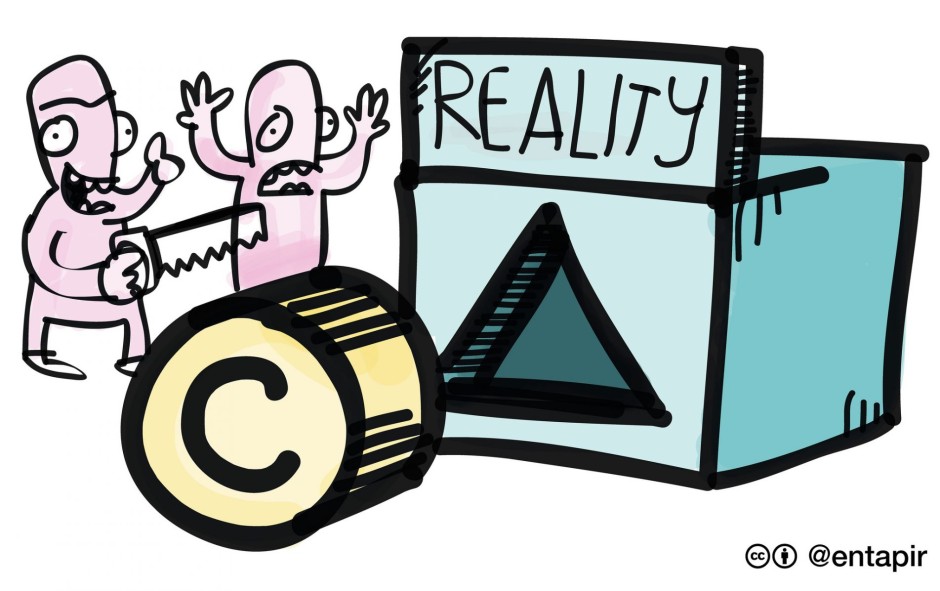German government joins growing criticism of European Commission’s content censorship proposals
In a potentially game-changing development, the EU’s largest member is joining six other nations in questioning the legality of the Commission’s proposed copyright changes
A leaked document has revealed that the German government has serious concerns about whether key aspects of the European Commission’s copyright plans are compatible with the fundamental human rights of EU citizens. Germany — the EU’s largest and most powerful member state — is levelling stark criticism at the Commission’s plans to force a wide range of websites to implement extensive content filtering mechanisms, which many experts have warned will result in widespread Internet censorship.
The potentially game-changing intervention by Germany comes as MEPs on the European Parliament’s influential civil liberties committee prepare for an October 5 vote on the Commission’s proposals. To become law, the Commission’s plans need to be approved by both the European Parliament and the European Council, which represents member states.
Germany is joining six other nations in questioning the legality of the Commission’s proposals. Earlier this month Belgium, the Czech Republic, Finland, Hungary, Ireland, and the Netherlands asked the European Council’s legal services team to investigate whether Article 13 of the Commission’s proposals would violate fundamental rights to freedom of expression, protection of personal data, and freedom of information. They also raised concerns that Article 13 could make the running of an online business unviable.
This is a welcome and highly significant intervention by Germany that is sure to weigh heavily on the minds of MEPs. The Commission’s proposals undermine our basic rights to free speech, privacy, access to information, and undermine key principles of the rule of law. Germany is raising fundamental questions today that should have been understood by the European Commission from the beginning of this process.
With several nations now warning that the Commission’s proposals are incompatible with fundamental rights, it’s clear that Europe’s leaders need to find the ‘delete’ key for mass content filtering. EU citizens deserve a copyright process that’s focused on making copyright work for the digital age, not one that undermines our basic rights, and puts the selfish interests of powerful publishing conglomerates ahead of the interests of the wider public.
Countless experts and advocates have warned that the Commission’s plans threaten the basic rights of EU citizens — and it's heartening to see those concerns echoed by the EU’s most powerful member state.
Key concerns raised by Germany in today’s leaked document include:
Warning that “it is doubtful” that the Commission’s proposals “will not interfere with the prohibition of a general obligation to monitor”.
Urging that “platforms must not be jeopardised in their function as a societal medium of communication. Moreover, it must be ensured that the competitiveness of European enterprises and the freedom of scientific communication are not impaired.”
Questioning whether the rules would impact non-EU businesses: “Would Article 13 of the draft also be applicable to providers who do not have a branch in the Union, but who are pursuing their activities within the Union (such as YouTube)?”
Asking “How is it possible to ensure that platforms onto which authors upload mainly their own works, or on which mostly public-domain works are stored, will not be encumbered with the costs of installing monitoring systems, should any such systems be introduced?”
Warning about the impact of the Commission’s plans on academic platforms, and asserting that “A constant monitoring and the resulting costs cannot be brought in line with the freedom of science.”
Article 13 of the Commission’s proposed Copyright Directive require that all sites where users create content must install machines to scan, filter and block uploads, to supposedly prevent the use of copyrighted content. Experts say this proposal effectively puts algorithms in charge of online content, and is a serious attack on citizens’ fundamental right to free expression.
EU citizens can use this tool (Deutsch, Español, Français, Polski) to send a message directly to their MEP about the Commission’s Internet censorship proposals.


 Take action now!
Take action now!
 Sign up to be in the loop
Sign up to be in the loop
 Donate to support our work
Donate to support our work